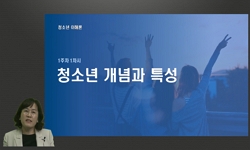BACKGROUND/OBJECTIVES: There is little information on the association between weight misperception and eating behavior in Korean adolescents. Therefore, we investigated the association of food intake habits and dieting method and disturbed eating beha...
http://chineseinput.net/에서 pinyin(병음)방식으로 중국어를 변환할 수 있습니다.
변환된 중국어를 복사하여 사용하시면 됩니다.
- 中文 을 입력하시려면 zhongwen을 입력하시고 space를누르시면됩니다.
- 北京 을 입력하시려면 beijing을 입력하시고 space를 누르시면 됩니다.



Weight misperception and its association with dieting methods and eating behaviors in South Korean adolescents
한글로보기https://www.riss.kr/link?id=A107330477
- 저자
- 발행기관
- 학술지명
- 권호사항
-
발행연도
2014
-
작성언어
English
- 주제어
-
등재정보
SCIE,SCOPUS,KCI등재
-
자료형태
학술저널
-
수록면
213-219(7쪽)
- 제공처
-
0
상세조회 -
0
다운로드
부가정보
다국어 초록 (Multilingual Abstract)
BACKGROUND/OBJECTIVES: There is little information on the association between weight misperception and eating behavior in Korean adolescents. Therefore, we investigated the association of food intake habits and dieting method and disturbed eating behavior (DEB) in relation to weight misperception.
SUBJECTS/METHODS: Data was collected by using a nationwide online panel survey from 6,943 adolescents enrolled in middle/high school. DEB was measured with the Eating Attitudes Test (EAT-26) and those who scored ≥ 20 on the EAT-26 were considered to have eating disorder. Logistic regressions were conducted to examine the association between weight misperception based on self-reported weight status and dieting method and eating behaviors.
RESULTS: The proportion of weight underestimation was 23.5% and that of overestimation was 24.0%. Weight overestimating girls were more likely to engage in various unhealthy dieting practices (OR = 1.69 for fasting; OR = 1.88 for laxative or diuretic use; OR = 2.05 for self-induced vomiting after meals; P < 0.05). Moreover, there was a strong association between overestimation and undesirable eating behaviors, especially among girls, e.g.: having breakfast (OR = 0.85), high consumption of fast foods (OR = 1.28) and regular sodas (OR = 1.39), but not among boys. In both genders, weight overestimation appears to be a major risk factor for DEB (OR = 1.34 for boys and OR = 1.41 for girls; P < 0.05).
CONSLUSIONS: Weight overestimation is associated with unhealthy weight control practices and eating behaviors. We particularly found a significant association between weight overestimation and DEB among nationwide Korean adolescents.
목차 (Table of Contents)
- INTRODUCTION
- SUBJECTS AND METHODS
- RESULTS
- DISCUSSION
- REFERENCES
- INTRODUCTION
- SUBJECTS AND METHODS
- RESULTS
- DISCUSSION
- REFERENCES
동일학술지(권/호) 다른 논문
-
Induction of apoptosis by a hexane extract of aged black garlic in the human leukemic U937 cells
- 한국영양학회
- Cheol Park
- 2014
- SCIE,SCOPUS,KCI등재
-
- 한국영양학회
- Jia-Le Song
- 2014
- SCIE,SCOPUS,KCI등재
-
- 한국영양학회
- Chunmei Li
- 2014
- SCIE,SCOPUS,KCI등재
-
- 한국영양학회
- Nam E Kang
- 2014
- SCIE,SCOPUS,KCI등재




 ScienceON
ScienceON DBpia
DBpia






